Ciumek, Napaskiaq: First, Napaskiak
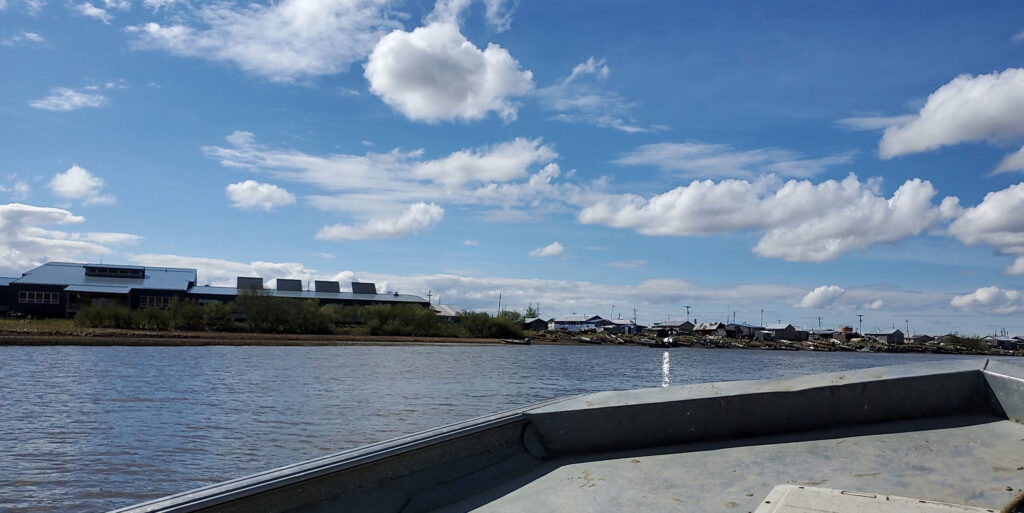
Napaskiak is the village that housed, nurtured, and grew me. Since its population is under 400 people, everyone knows everyone, and everyone is related to each other, or at least distantly. My values and morals developed in this village, by elders speaking to my classmates and I during school, and learning by my own experiences.
Living in a rural village has its cons, from lack of resources to how easy it is to gossip, but these cons were nothing to me as a child. I have always witnessed the joy in communicating with each other during feasts, I saw the love in my community through comforting each other during funerals, and I could never be ashamed from originating in a place that is deemed to be impoverished in textbooks, since while villages are not rich financially, they are rich with life. There is food to be caught and not bought, there are feasts to join instead of feeling like an outcast, while jobs may not be available, some people still continue with the traditional subsistence life as their career.
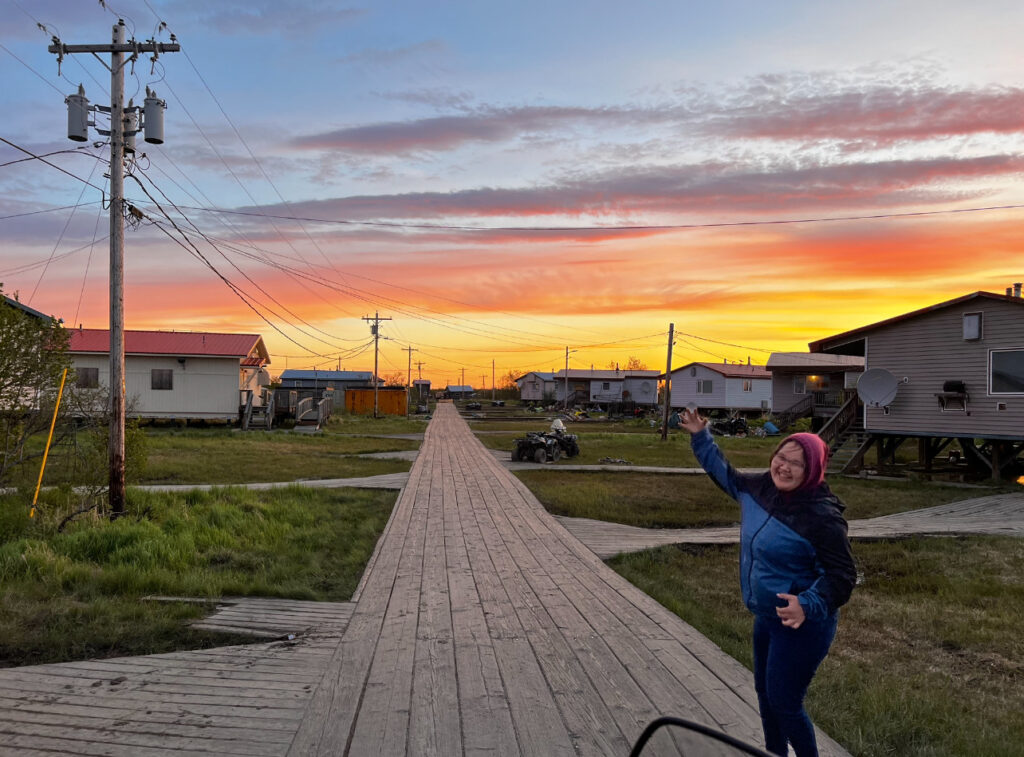
However, it is true about the effects of Historical Trauma within villages. It is true of what the textbooks and documentaries say about the addictions and how depression is riddling within communities, since I know more than 20 people who passed from suicide and suffer from depression – but I never seen resilience as strong as people from villages are. While people may suffer from the effects of colonization, there is great strength and resilience that comes from it, seeing how my village still manages to practice traditional values and customs that colonizers and missionaries tried so hard to remove.
Kuik: The River
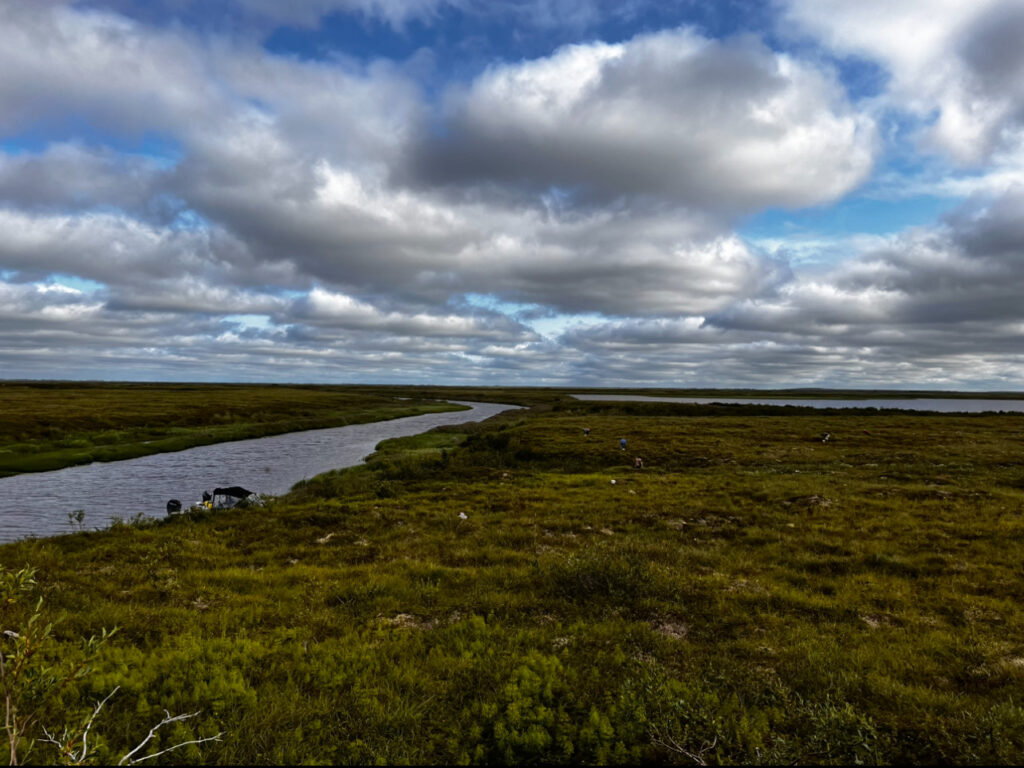
The Kuskokwim river holds fish, allows people to ride through areas with ease, brings drift wood to beaches, and houses many villages to be resided on tundra.
The elders have always talked about the importance of respecting the land and river. If we hurt the river or land, then people will not have food or a house to be placed in.
Climate change has a visible effect on Native communities in Alaska. There is a documentary about Newtok, AK, that can show the details in better words than I can.
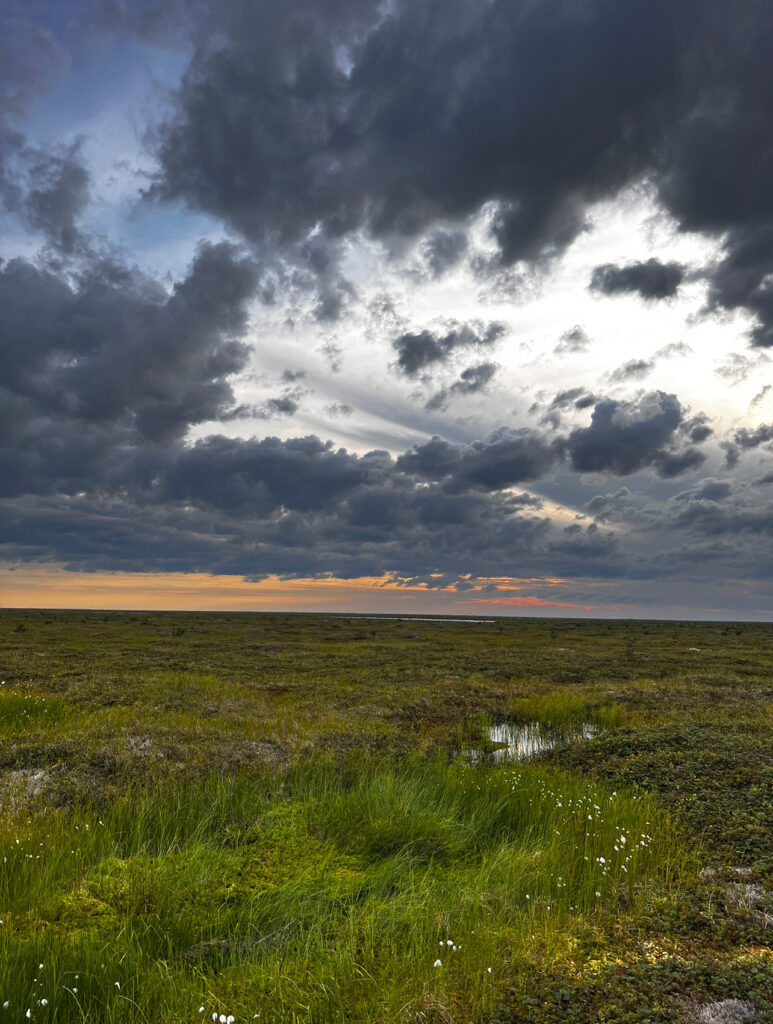
Climate change has always been a sensitive topic to me. I learned about climate change when I was 10 years old. My mom is a 4th grade teacher, and she taught my class about climate change, and I can still hear her voice crack as she taught it. An elder came to talk to us, and she explained how the fish were big back then, how far Napaskiak’s tundra that’s facing the river was compared to today, and explained how it has affected the elders during the too-hot summers. One of my classmates asked how climate change even happened, and the elder said “Tuai-wa yuut kaigilraini akiinek.” In english, it is because of people and their greed for money. To this day, I have always had a sense of anger for the damages of the Earth, and how some non-Indigenous peoples in higher power refuse to stop their acts, all in the name for money and power.
Kuiggem Cikiutai: The River’s Gifts
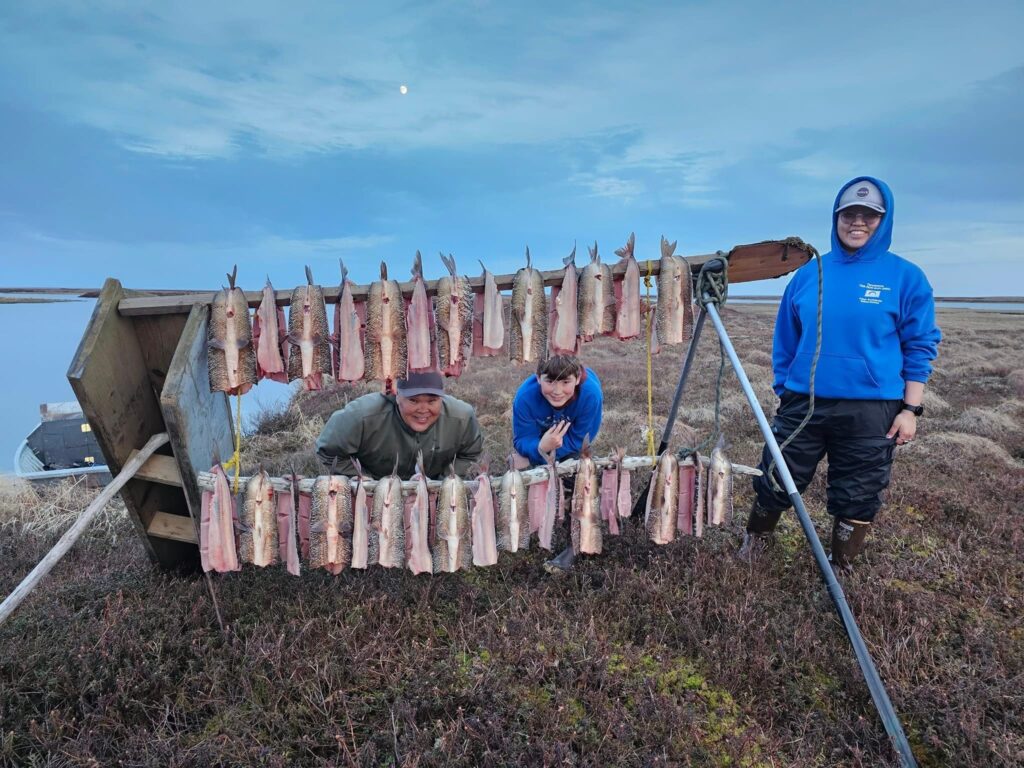
As I stated previously, the river beholds many gifts. Especially giving fish to people, since groceries in Bethel are expensive.
From this, people still continue to depend on the river and land for food – including my family. The white fish shown on the right, is food for the spring and summer, until the season for king salmon opens for a limited time.
However, trawlers in Alaska are one of the major reasons why Indigenous communities will continue to suffer without food in their freezers.
My grandfather is an elder from Toksook Bay, AK, and he works with Fish and Wildlife, and in one of the visits, we began to talk about trawlers. With clear anger in his eyes, he made gestures with his hands, of how the trawlers and their nets destroy the ecosystem, how careless they treat the animals they catch, how they’re the main reason why families are starving. With sadness in his voice, he talked about how the legislation for limited fishing is also cracking down on Indigenous peoples, and even predicted that they would most likely shut down all fishing privileges in the Kuskokwim river, just like they did with the Yukon river. All for the trawlers to have more fish, all for the businesses to have more money, all for them to gain more power. He talked about how they do not care about Native people, that the only thing they care about, is the money that they would get from stealing food from families that could barely get by.
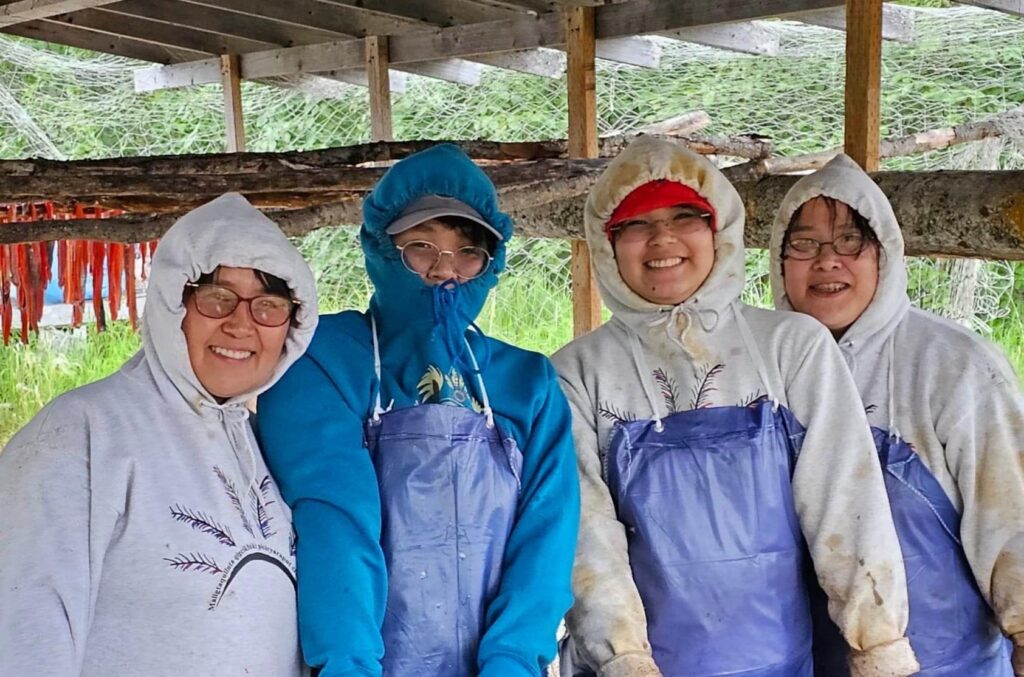
However, it is the Central Yup’ik value to sit there and not talk back, or act out in retaliation to anything harming a person. When I told him how we have to raise our voices and protest against this, he said that it is against our values as Yup’iit people to do such a thing. However, part of me believes that this value came from the values of a person who wants to colonize lands and power. It is an effect of historical trauma, after all. While this Yup’ik value is true and should be followed in other interpersonal situations, I still believe that in order for people to get the food back into their freezers, we have to use our voices to get it back.
Generational Traditions
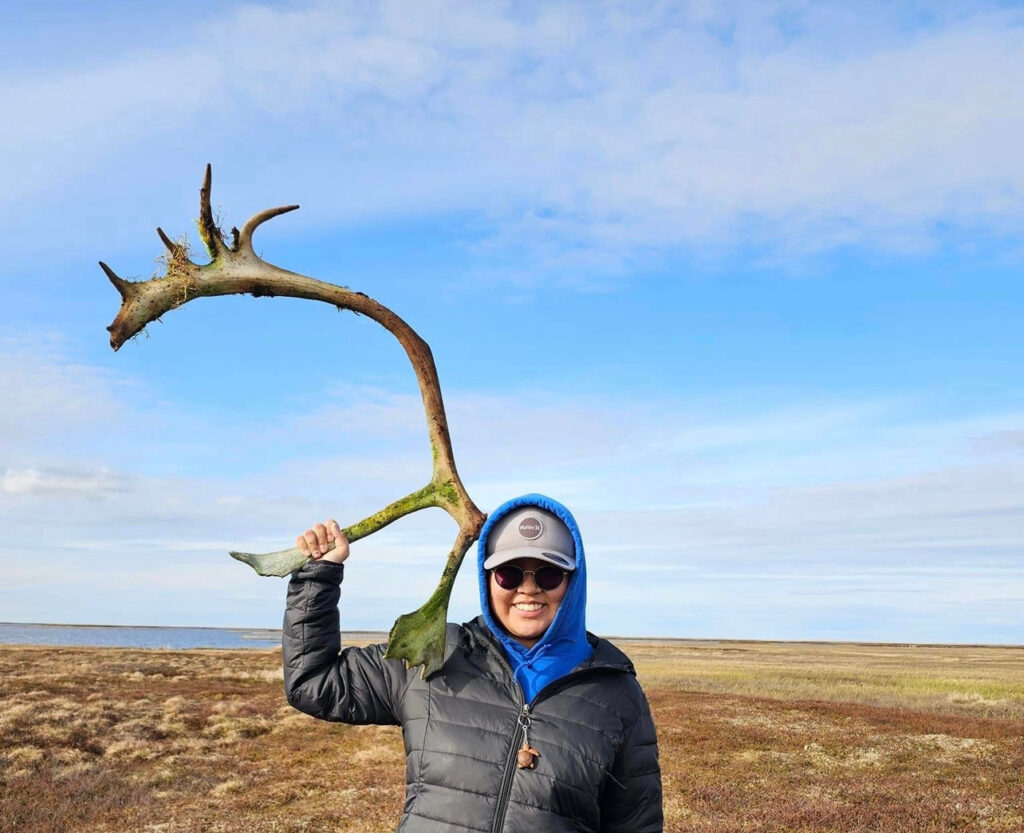
The Indigenous peoples of the Southwest have been practicing traditions for generations upon generations. Traditions include how to take care of the animals we catch, how to gather a feast for the village, how to listen to others speaking, and how to be a respectful human being.
One of my current classes is about Ethics and Morals, and one of the assignments asked how my culture’s morals developed. I asked my grandmother, parents, and even older brothers, and they all answered with the same statement: “Because we are human – we learned as we kept surviving – our morals are written in blood.”
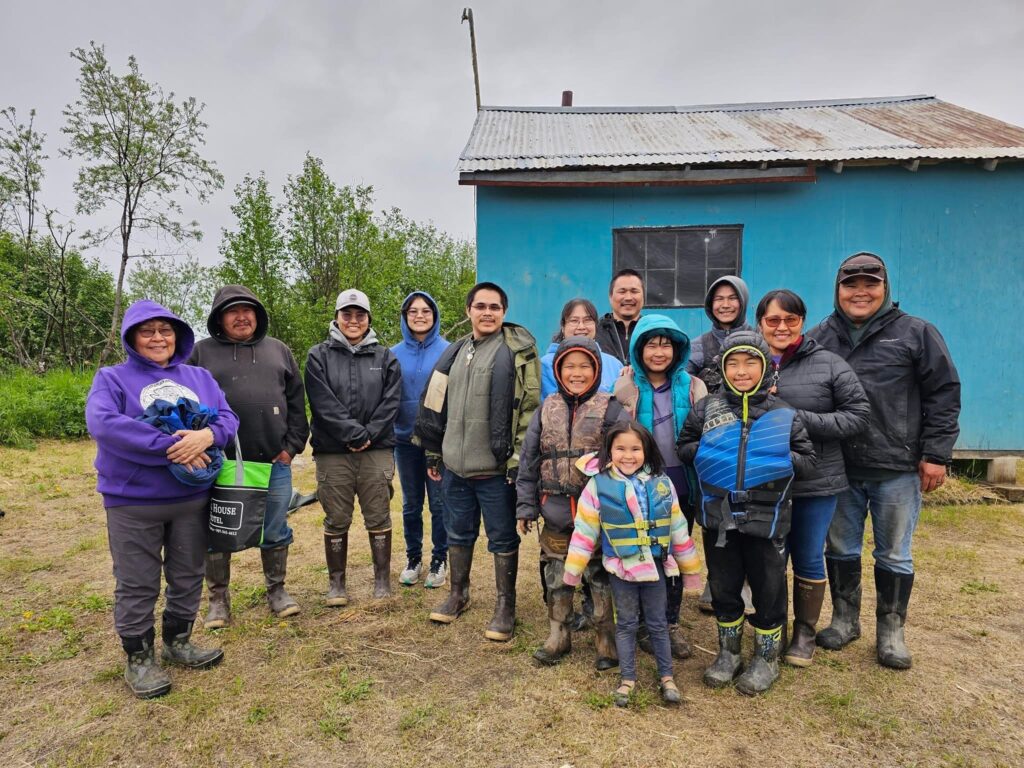
There is a saying in my culture, that if you followed the yuuyarat: rules of behaving in life, the person would live a long and prosperous life. I believe this value to be true, because the rules would only provide safety and promote a good well being. Following these rules would allow the person to become happier, seeing that there would be great joy in carrying on these traditions, especially after colonization.
One of my favorite memories of my family’s fish camp, is the games my cousins and I would play as children, and we would swim in the river while our parents would take care of the fish. I was 10 when it was my time to learn how to process fish, and these lessons continued on as I grew older.
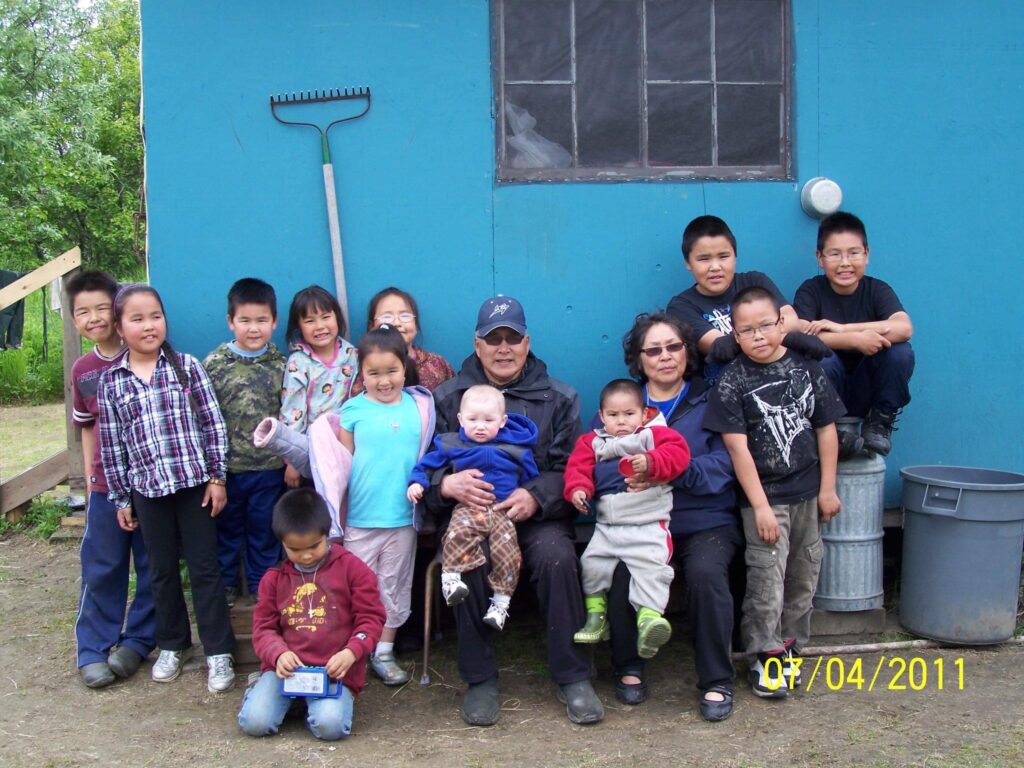
These traditions would not have been passed down if it weren’t for our elders and grandparents. My grandfather was the man that made our fish camp run, every question about when to fish, how many bags would be distributed, and more, would be answered by him. He was very funny, and he was so social that it amazed me how easy he could get along with anyone, and he was especially intelligent. He was known to have a great long term memory, a trait of which was passed down to some of his grandchildren. He is the main reason why I hold our culture close to my heart, because he made it his goal to teach his children and grandchildren about our way of life, even after he was sent to boarding school as a child to be assimilated of his culture. He never gave up, and neither did we.
Final Thoughts/Conclusions
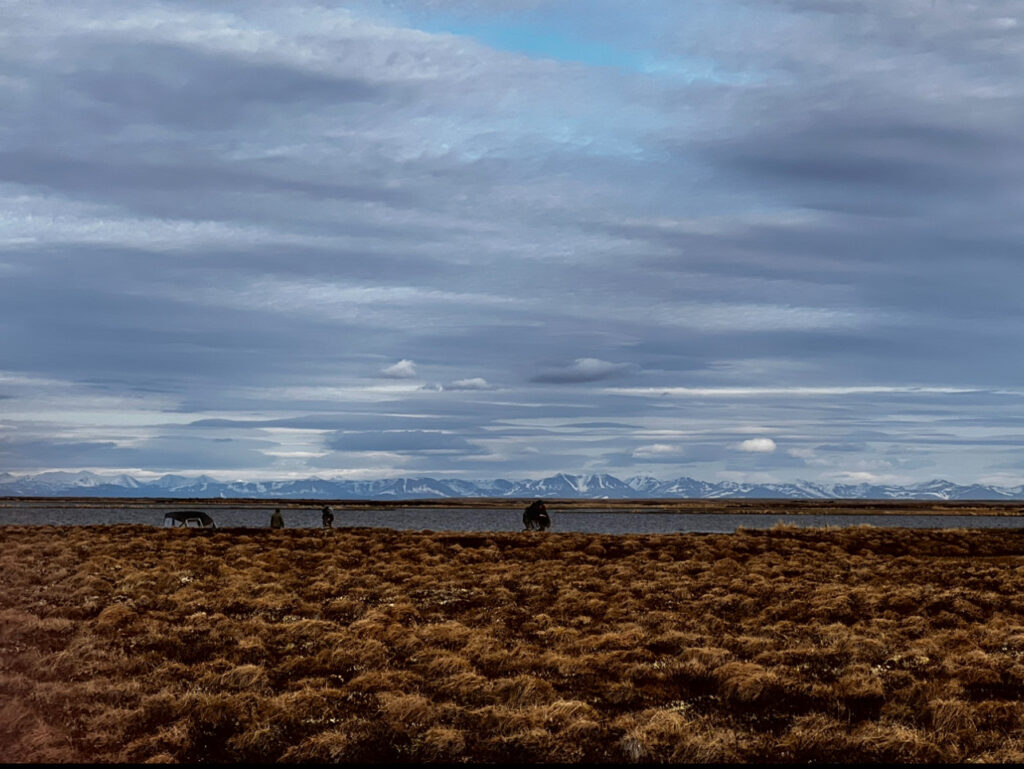
Who I am is from the environment that took care of me. My family, culture, hometown village, and the tundra has influenced the way I view the world. While I am angry about the situations that endanger people’s health and well being, this anger can be directed into determination to help change the situation.
It sometimes astonishes me that there are people who do not know how a rural small community works, and especially how it influences people into a different manner of a mindset. I had a friend that was very passionate about psychology and community, and I was talking about my hometown and their belief system, of which they asked “So, it’s like a cult?” very bluntly. I was taken aback, but I later realized that they never grew up in a small community as I have. Of course, I can see why they asked that, seeing how cult-ish my village is based on how the elders and adults talk about values to children, but I never saw it that way. This traditional way of teaching children how to be good people, was a tradition that was passed down for thousands of years. How to work as a community, how to care for each other, and how to heal together, is tradition. Having to take it away into more of a western belief system would be adding to colonization, and would result in a cultural death.
Nonetheless, I am proud to be Central Yup’ik. The traditional values to be respectful of my surroundings, and to fight for what is right, will guide me to be a good social worker. Especially in terms of the revolutionary side of a social worker – I will try my best to be a good advocate to speak up to do what is right, even if it means going against the Yup’ik rule of not retaliating.
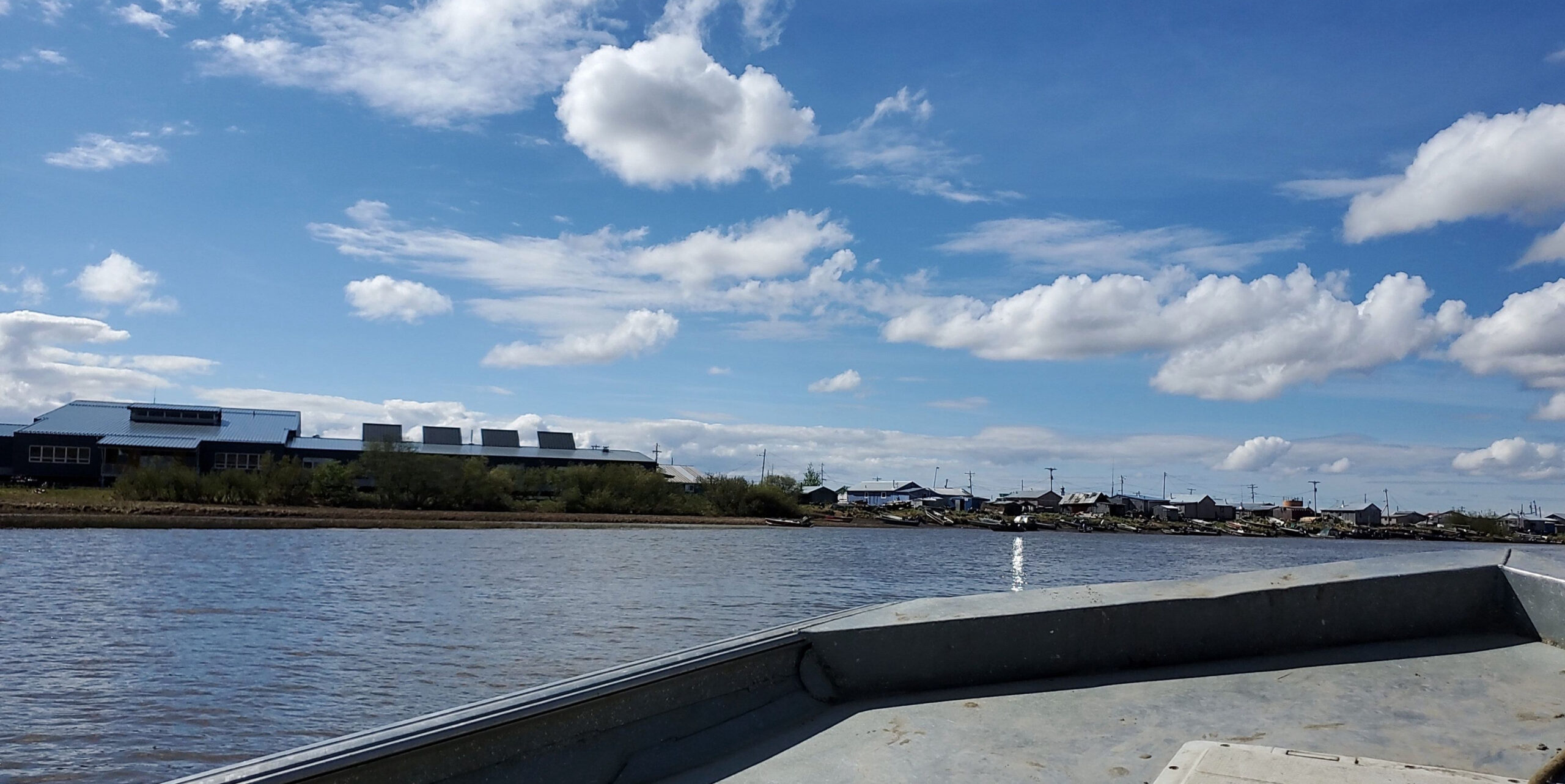
Comments
One response to “Wiinga, Yuillquq-llu: The Tundra and I”
Hey Jere, thank you so much for sharing your story with us, I really enjoyed reading it! I always really appreciate when people share their lives of living in different villages, because I find it so fascinating. The smallest place I have ever lived, is Fairbanks, and although it’s probably the smallest town I’d be willing to actually live in, I would love to one day visit one of these villages that UAF spends so much time teaching us about!